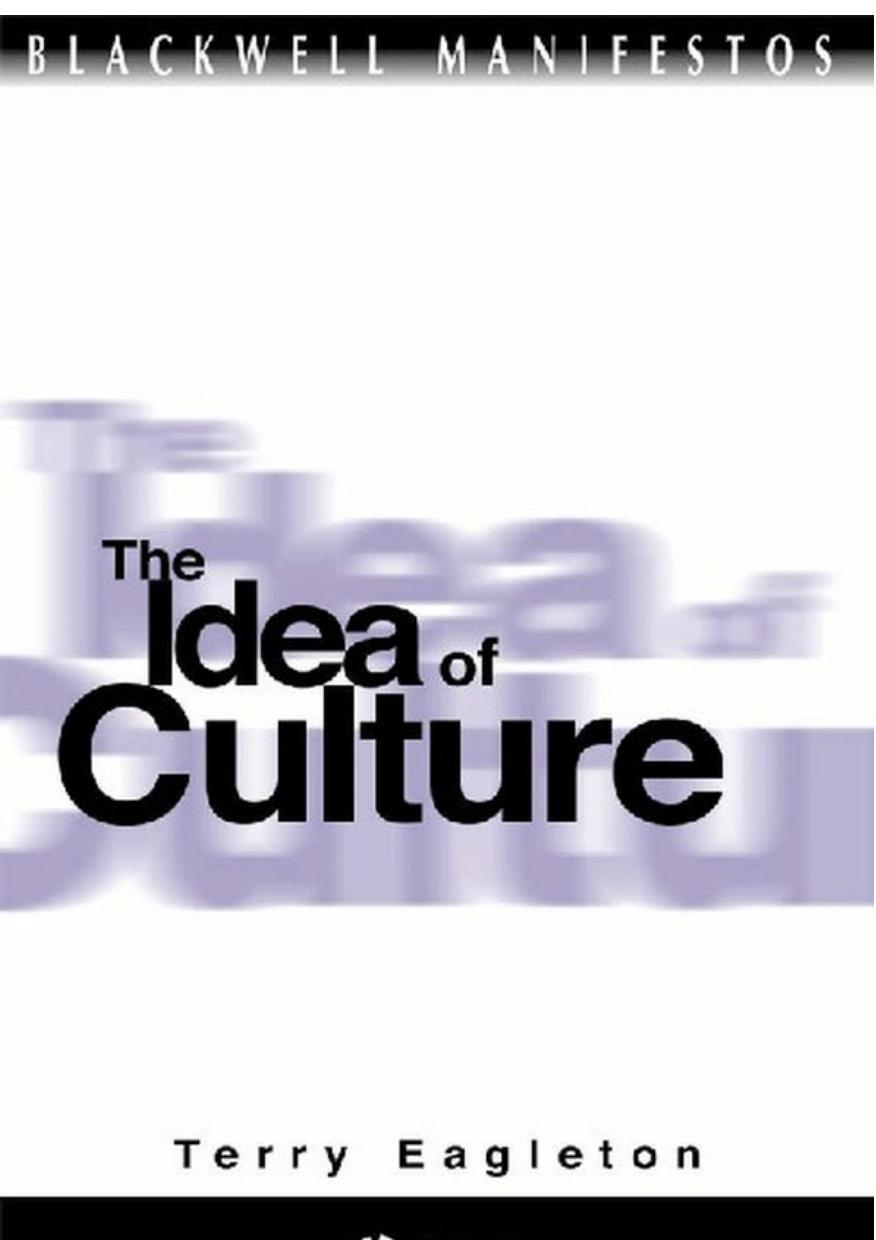The Idea of Culture by Terry Eagleton

Author:Terry Eagleton [Eagleton, Terry]
Language: eng
Format: epub, pdf
ISBN: 9781118724859
Google: Sm9Dnp07s2UC
Published: 2013-05-29T02:43:07+00:00
4
Culture and Nature
It is evidently quite possible to cut off oneâs own hand without feeling pain. People whose hand has become trapped in machinery have sometimes amputated it painlessly, distracted as they were by the need to disentangle themselves. Political protestors have also been known to set themselves on fire without feeling a thing, their pain blocked out by the intensity of their passion. Someone may smack a child quite lightly for some offence and he will cry, but you may smack him much harder in the course of a game only to evoke a delighted laugh. On the other hand, if you smack a child really hard in jest, he is quite likely to cry even so. Meanings can mould physical responses, but they are constrained by them too. The adrenal glands of the poor are often larger than those of the rich, since the poor suffer more stress, but poverty is not able to create adrenal glands where none exist. Such is the dialectic of nature and culture.
People who set themselves on fire may feel no pain, but if they burn themselves badly enough they will perish even so. In this sense, nature has the final victory over culture, customarily known as death. Culturally speaking, death is almost limitlessly interpretable, as martyrdom, ritual sacrifice, blessed release from agony, joyous freedom for oneâs long-suffering kinsfolk, natural biological end, union with the cosmos, symbol of ultimate futility and the like. But we still die, however we make sense of it. Death is the limit of discourse, not a product of it. It is part of nature, which in Kate Soperâs words means âthose material structures and processes that are independent of human activity (in the sense that they are not a humanly created product), and whose forces and causal powers are the necessary condition of every human practiceâ.1 The kind of hubris which denies this, which one might dub the California syndrome, is to be expected from a triumphalist technocracy which can vanquish everything but mortality. Hence, no doubt, the middle-class American obsession with the body, which crops up in almost all of its fashionable preoccupations: cancer, dieting, smoking, sport, hygiene, fitness, mugging, sexuality, child abuse. Literary studies whose titles do not contain the word âbodyâ are looked on with disfavour these days by US publishing houses. Perhaps this is because a pragmatist society believes in the end only in what it can touch and handle.
But the sheer givenness of the body, slim, pierce, silicone or tattoo it as one might, is also a scandal to the American dream of self-creation. There is more than a touch of this in the postmodern insistence that the body is a cultural construct, as much clay in the hands of the imaginative interpreter as it is stuff to be pummelled in the hands of the masseur. In circles which are more and more keen on the organic, the word ânaturalâ evokes a curious antipathy. The American philosopher Richard Rorty writes that âthe only lesson of either history or anthropology is our extraordinary malleability.
Download
This site does not store any files on its server. We only index and link to content provided by other sites. Please contact the content providers to delete copyright contents if any and email us, we'll remove relevant links or contents immediately.
| Anthropology | Archaeology |
| Philosophy | Politics & Government |
| Social Sciences | Sociology |
| Women's Studies |
The Leavers by Lisa Ko(6459)
Born to Run: by Christopher McDougall(6249)
iGen by Jean M. Twenge(4693)
Sapiens by Yuval Noah Harari(4528)
The Kite Runner by Khaled Hosseini(4413)
Spare by Prince Harry The Duke of Sussex(4188)
Bullshit Jobs by David Graeber(3171)
Livewired by David Eagleman(3113)
Goodbye Paradise(2948)
Never by Ken Follett(2869)
A Dictionary of Sociology by Unknown(2516)
Harry Potter 4 - Harry Potter and The Goblet of Fire by J.K.Rowling(2413)
The Club by A.L. Brooks(2350)
People of the Earth: An Introduction to World Prehistory by Dr. Brian Fagan & Nadia Durrani(2345)
The Social Psychology of Inequality by Unknown(2304)
Machine Learning at Scale with H2O by Gregory Keys | David Whiting(2263)
Harry Potter and the Order of the Phoenix (5) by J.K. Rowling(2224)
0041152001443424520 .pdf by Unknown(2213)
Don't Sleep, There Are Snakes by Daniel L. Everett(2212)
